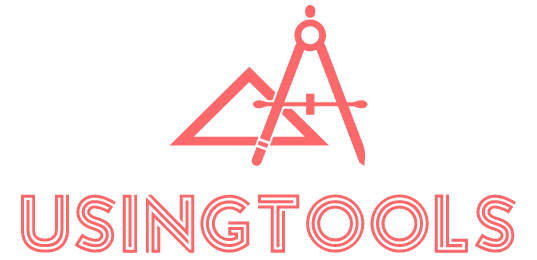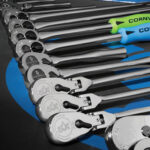Tools are implements designed to aid in accomplishing a specific task or set of tasks. They are essential for various activities, from basic household chores to complex construction projects and industrial operations. Tools can be categorized into two main types: hand tools and power tools.
Hand tools are manually operated instruments that rely on human effort and leverage to function. Examples include hammers, wrenches, pliers, screwdrivers, saws, and gardening tools like shovels and rakes. These tools are versatile, portable, and often require minimal maintenance.
Power tools, on the other hand, are driven by an external energy source, such as electricity, compressed air, or gasoline. Common examples include drills, saws, sanders, grinders, and lawn mowers. Power tools are designed to increase efficiency and productivity, allowing users to complete tasks faster and with less physical exertion.
Tools serve a wide range of purposes, from basic household repairs and maintenance to complex construction projects, automotive work, woodworking, metalworking, and more. They are essential for tasks like driving nails, cutting materials, tightening or loosening fasteners, shaping or smoothing surfaces, and many other applications.
Table of Contents
Why Find Tools Near You?
Finding tools near you offers several advantages over ordering online or traveling long distances. Convenience is a significant factor, as you can quickly obtain the necessary tools without waiting for shipping or making lengthy trips. This saves you valuable time that can be better spent on your projects.
Additionally, sourcing tools locally can save you money on shipping costs, which can add up quickly, especially for larger or heavier tools. By avoiding these expenses, you can allocate more of your budget towards the tools themselves or other project materials.
Another benefit of finding tools near you is the ability to inspect them in person before making a purchase. This allows you to assess the condition, quality, and suitability of the tools for your specific needs, reducing the risk of ending up with subpar or unsuitable equipment.
Furthermore, supporting local businesses when sourcing tools can have a positive impact on your community. These businesses often have a deep understanding of the tools and their applications, and they can provide valuable advice and guidance based on their expertise. By patronizing local establishments, you contribute to the local economy and help sustain these valuable resources in your area.
Hardware Stores and Home Centers
One of the most convenient places to find a wide variety of tools near you are hardware stores and home centers. Major retailers like Home Depot, Lowe’s, and Ace Hardware have locations across the country, making it easy to access their extensive selections of tools for both professionals and DIYers.
These stores typically carry everything from basic hand tools like hammers, wrenches, and pliers, to power tools such as drills, saws, and sanders. You’ll also find specialized tools for specific tasks like plumbing, electrical work, woodworking, and automotive repair. Many of these stores also offer tool rental services, allowing you to rent larger or less frequently used tools for a short period of time.
In addition to their tool selections, hardware stores and home centers often have knowledgeable staff on hand to provide advice and guidance on tool selection, usage, and project planning. Some locations even offer workshops and classes to help customers learn new skills and techniques.
With their convenient locations, wide product ranges, and additional services, hardware stores and home centers are an excellent option for finding the tools you need, whether you’re tackling a major home renovation or just need a few basic tools for routine maintenance and repairs.
Tool Rental Centers
Tool rental centers offer a convenient and cost-effective option for those who need tools for occasional or infrequent projects. Rather than purchasing tools outright, which can be expensive and lead to clutter, renting allows you to access the necessary equipment when you need it, without the long-term commitment or storage concerns.
Renting tools is particularly useful for homeowners tackling DIY projects, contractors working on short-term jobs, or anyone who requires specialized equipment for a specific task. From power tools like saws, drills, and sanders to larger equipment like floor sanders, pressure washers, and aerators, tool rental centers provide a wide range of options to meet various needs.
One of the key advantages of tool rental centers is their accessibility. Many are located in hardware stores, home improvement centers, or dedicated rental facilities, making it easy to find one near your location. Some rental centers even offer delivery services, bringing the tools directly to your project site for added convenience.
Pricing at tool rental centers typically varies based on the type of tool, rental duration, and any additional services required. Many offer daily, weekly, or monthly rental rates, allowing you to choose the option that best fits your project timeline and budget. Some rental centers may also require a security deposit, which is refundable upon the safe return of the rented tools.
Pawn Shops and Second-Hand Stores
Pawn shops and second-hand stores can be excellent sources for finding used tools at discounted prices. These establishments often have a wide variety of tools that have been previously owned, ranging from hand tools to power tools. Buying used tools can save you a significant amount of money compared to purchasing new ones, making it an attractive option for those on a tight budget or those looking for a good deal.
When shopping for used tools at pawn shops and second-hand stores, it’s essential to inspect them thoroughly before making a purchase. Check for signs of wear and tear, such as rust, dents, or missing parts. Test the tool’s functionality, if possible, to ensure it’s in working condition. It’s also a good idea to research the tool’s market value to ensure you’re getting a fair price.
Many pawn shops and second-hand stores have knowledgeable staff who can provide valuable information about the tools they have in stock. Don’t hesitate to ask questions about the tool’s history, condition, and any potential issues or concerns.
Local pawn shops and second-hand stores can be found in most communities. Check your local directories or search online for listings in your area. Some popular national chains include Cash America Pawn, EZCorp, and Pawngo, but be sure to explore locally owned establishments as well. With a little patience and diligence, you can often find high-quality tools at a fraction of the cost of buying new.
Online Marketplaces for Local Sellers
Online marketplaces like Craigslist and Facebook Marketplace can be excellent resources for finding tools being sold by individuals in your local area. These platforms allow users to list items for sale and connect with potential buyers nearby.
One of the advantages of using these online marketplaces is the ability to search for specific tools you need and filter the results based on your location. This can save you time and effort compared to visiting multiple yard sales or pawn shops in person.
When using these platforms, be sure to read the item descriptions carefully and ask the seller any relevant questions you may have about the tool’s condition, age, and functionality. It’s also a good idea to request additional photographs or videos if the listing doesn’t provide enough detail.
Safety should be a top priority when meeting up with a local seller. Arrange to meet in a public place during daylight hours, and consider bringing a friend or family member with you. Avoid going alone to someone’s home or inviting them to yours. If possible, inspect the tool thoroughly before completing the transaction.
While online marketplaces can offer great deals on tools, it’s important to exercise caution and common sense. If a listing seems too good to be true or raises any red flags, it’s best to move on and continue your search elsewhere.
Specialty Tool Suppliers
For specialized tool needs, consider local suppliers that focus on particular trades or industries. These businesses often have extensive expertise and a deep selection within their niche. Woodworking stores stock an array of saws, planes, chisels, and other carpentry tools. Automotive shops offer specialized diagnostic equipment, mechanics’ tools, and vehicle-specific tooling. Gardening centers provide landscaping tools, pruners, tillers, and more for outdoor projects. By tapping into these specialized local sources, you can access knowledgeable staff, high-quality tools designed for the job, and expert advice for selecting the right equipment.
Mobile Tool Trucks
Mobile tool trucks are a convenient option for contractors, tradespeople, and DIYers who need tools on-site or don’t want to transport heavy equipment. These trucks essentially bring the hardware store to you, stocked with a wide range of tools and supplies from major brands.
For construction crews, having a tool truck visit the job site can save valuable time and increase productivity by providing immediate access to any needed tools or consumables. Instead of sending workers to the hardware store, the truck comes right to the work site on a scheduled basis.
Some of the most common mobile tool truck companies that service contractors include Snap-On Tools, Mac Tools, Matco Tools, and Cornwell Tools. These national franchises have thousands of independently-owned trucks that make regular routes to construction sites, auto repair shops, manufacturing facilities, and other job sites.
The trucks carry everything from power tools and hand tools to safety gear, fasteners, taps and dies, abrasives, and more. Many tool dealers also offer repair services right on the truck. Contractors can order specialty tools or place will-call orders for the next time the truck is scheduled to arrive on site.
For tradespeople who make house calls like plumbers, electricians, and HVAC techs, mobile tool trucks offer a convenient way to restock supplies and tools between jobs without having to run to the store. The flexibility and time savings of having the store come to you can be a major advantage for mobile service providers.
Yard/Garage Sales and Flea Markets
One of the best places to find inexpensive used tools is at local yard sales, garage sales, and flea markets. These venues offer a treasure trove of secondhand items, including tools that previous owners no longer need or have upgraded. With a keen eye and some bargaining skills, you can uncover hidden gems at remarkably low prices.
When scouring yard sales and flea markets for tools, it’s essential to inspect each item carefully. Look for signs of wear and tear, rust, or damage that could affect the tool’s functionality. Test moving parts, check for cracks or missing pieces, and ensure that any safety features are intact. Don’t hesitate to ask the seller about the tool’s history and condition.
Many communities have online classifieds or social media groups dedicated to advertising upcoming yard sales or flea market events. These platforms can be invaluable resources for finding local listings and planning your tool-hunting excursions. Additionally, some municipalities publish yard sale maps or directories, making it easier to navigate and maximize your chances of finding the tools you need.
While yard sales and flea markets may require more time and effort to uncover quality tools, the potential savings and the thrill of the hunt make them worthwhile destinations for savvy tool enthusiasts and DIYers on a budget.
Tool Libraries and Sharing Programs
An increasingly popular option for accessing tools locally is through tool libraries and sharing programs. These community-based initiatives provide access to a wide range of tools that can be borrowed for a small fee or even for free. Tool libraries operate similarly to traditional book libraries, allowing members to check out tools for a specified period and return them when finished.
Tool libraries are often run by non-profit organizations, community centers, or local governments. They aim to promote sustainability, reduce waste, and provide access to tools that might otherwise be too expensive for individuals to purchase. By sharing tools among community members, these libraries help minimize the need for everyone to own every tool they may occasionally require.
In addition to tool libraries, there are also tool sharing programs facilitated by online platforms or neighborhood groups. These programs connect tool owners with those in need, enabling peer-to-peer tool lending within a local community. Participants can either lend their tools for free or charge a small fee to offset maintenance costs.
Both tool libraries and sharing programs offer a cost-effective and environmentally friendly way to access a wide variety of tools for home improvement projects, gardening, automotive work, and more. They foster a sense of community by encouraging resource sharing and reducing the need for individual ownership of infrequently used tools.
Apps and Sites to Find Local Tool Listings
In the digital age, there are numerous apps and websites that can help you find people selling tools near you. These platforms connect buyers and sellers within the same community, making it easier to locate the tools you need without having to travel far.
One popular option is Craigslist, a classified advertisements website where individuals can post listings for tools they want to sell. The platform is free to use, and you can search for specific tools or browse through the listings in your local area. However, it’s essential to exercise caution when dealing with strangers and always meet in a public place for safety reasons.
Another useful app is OfferUp, which allows users to buy and sell locally. The app has a dedicated category for tools, making it easier to find what you’re looking for. OfferUp also offers features like messaging and rating systems to facilitate communication and build trust between buyers and sellers.
Facebook Marketplace is another excellent resource for finding local tool listings. Since it’s integrated with Facebook, you can see if the seller is part of your network or has mutual friends, which can help establish trust. The platform is user-friendly and allows you to filter your search by location, price range, and condition.
If you’re looking for more specialized tools or equipment, sites like ToolTango and IronPlanet might be worth exploring. These platforms cater specifically to the buying and selling of tools and machinery, often from professionals or businesses. While the selection may be more limited to your local area, you can find high-quality tools at reasonable prices.
When using these apps and sites, it’s essential to read the descriptions carefully, ask questions if needed, and inspect the tools thoroughly before making a purchase. Additionally, some platforms may charge fees or commissions, so be sure to factor those costs into your budget.
Tips for Finding Quality Tools Locally
When searching for quality tools locally, it’s essential to inspect them thoroughly before making a purchase. Look for signs of wear and tear, such as rust, dents, or cracks, which could indicate the tool has been heavily used or mishandled. Check for missing parts or components, and ensure all moving parts function smoothly.
If possible, ask the seller about the tool’s history and how it was used. Inquire about any maintenance or repairs that have been performed, and request documentation if available. This information can provide valuable insights into the tool’s condition and lifespan.
It’s also crucial to consider the pricing of the tool. While a lower price may seem appealing, it could indicate that the tool is of lower quality or has significant wear and tear. Research the average market price for similar tools in good condition to ensure you’re not overpaying or getting a subpar product.
When assessing a used tool’s value, consider factors such as brand reputation, age, and rarity. Well-known brands with a history of producing high-quality tools are generally more desirable and can command higher prices, even when used. Older tools, particularly those from reputable manufacturers, may be highly sought after by collectors or professionals, increasing their value.
Additionally, inquire about any warranties or guarantees offered by the seller. Reputable sellers may provide some form of warranty or return policy, which can provide peace of mind and protect your investment.
Finally, trust your instincts. If a deal seems too good to be true or the seller appears evasive or untrustworthy, it’s best to walk away and continue your search elsewhere.
Local Tool Repair and Sharpening Services
Finding local tool repair and sharpening services can be a cost-effective alternative to replacing tools that have become dull or damaged. Many communities have small businesses that specialize in sharpening blades, reconditioning power tools, and performing repairs on a wide range of equipment. These services can extend the life of your tools and save you money in the long run.
To locate nearby tool repair and sharpening services, start by searching online directories or browsing local classifieds. Look for keywords like “tool sharpening,” “blade sharpening,” “tool repair,” or “small engine repair.” Many hardware stores and home centers also offer sharpening services for common tools like lawnmower blades, scissors, and knives.
When evaluating local tool repair and sharpening services, consider factors such as their experience, turnaround time, and pricing. It’s often a good idea to read reviews or ask for recommendations from friends or neighbors who have used these services before. Some businesses may specialize in specific types of tools, such as woodworking equipment or garden tools, so be sure to verify that they can handle the tools you need serviced.
Keeping your tools well-maintained and sharp not only extends their lifespan but also ensures safer and more efficient operation. By supporting local tool repair and sharpening services, you can reduce waste, save money, and contribute to a more sustainable community.


